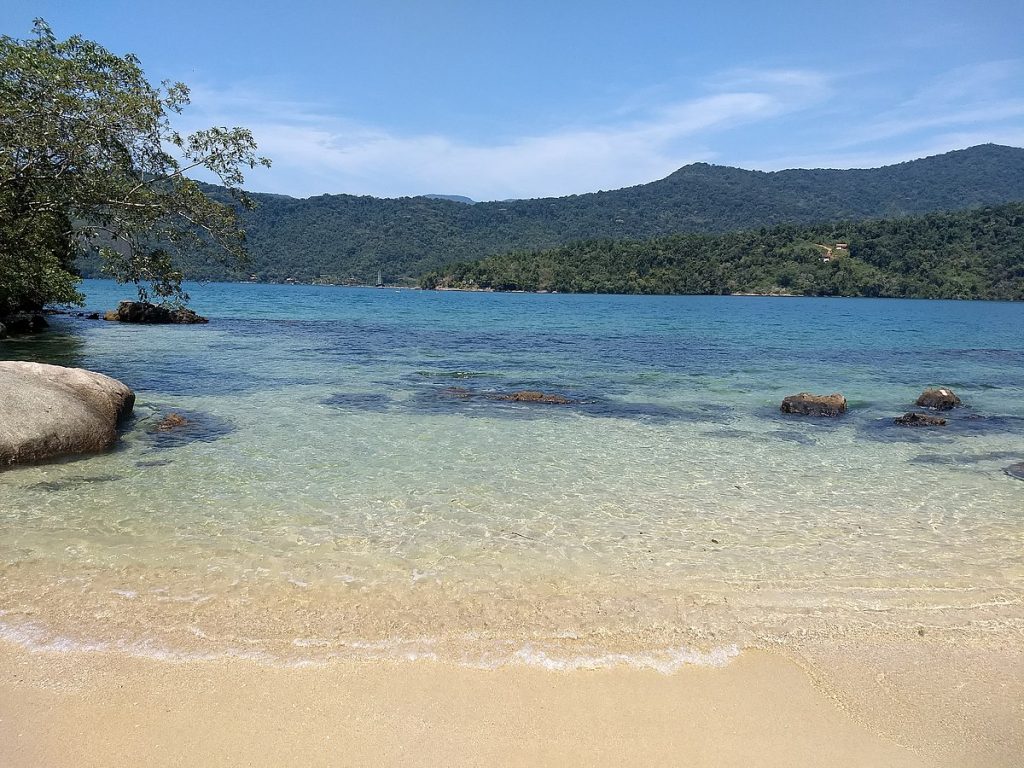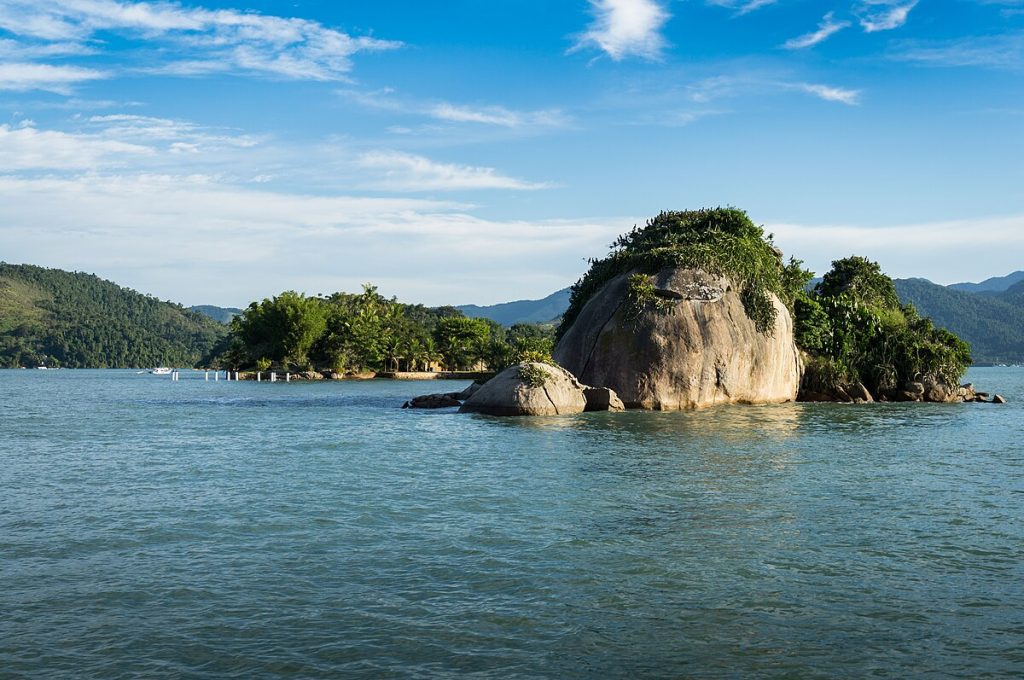At the end of May, a link to an auction website began circulating in WhatsApp groups among residents of Paraty (a UNESCO World Heritage List town in the state of Rio de Janeiro). The images in the publication showed well-known local beaches, used as a selling point to advertise the land for sale.
“We thought it was a bluff, you know?” says the tourism specialist Eder Costa, a resident of Ilha do Araújo, home to around 500 people. “We thought it was fake news or someone trying to run a scam,” he says.
As the links kept circulating, some residents decided to investigate and discovered that, in fact, 32 plots of land in the county were being auctioned. Around 29 of these had already been purchased by unknown buyers.
Therefore, without any official communication, residents of small traditional communities were informed that the places where they have lived for centuries were being sold. Nearly all of the properties are located within conservation units, protected areas for fauna and flora, with preserved forests and native wildlife, under the responsibility of the federal government.

Two plots are located within the Serra da Bocaina National Park and 24 are in the Cairuçu Environmental Protection Area (APA in Portuguese). According to the Chico Mendes Institute for Biodiversity Conservation (ICMBio in Portuguese), which oversees the areas, the APA is “intended to ensure the protection of the natural environment that houses rare and endangered species, landscapes of great scenic beauty, regional water systems, and local communities integrated into this ecosystem.”
In a statement to Brasil de Fato, ICMBio reported that it has launched an internal investigation and forwarded the case to the Federal Specialized Prosecutor’s Office and the Federal Public Prosecutor’s Office, “especially considering the risk of interference with the goals of the Cairuçu Environmental Protection Area (APA).”
Traditional Territory
All 29 auctioned plots are located in a territory inhabited by artisans, fishermen, extractivists, and farmers whose ways of life and cultural traditions are closely tied to the preservation of the Atlantic Forest. The intersection of cultural heritage and preserved nature earned Paraty the distinction of being the first and only Brazilian municipality to be classified as a World Heritage Site in the “mixed site” category by UNESCO.
“We really are that—we’re a heritage. We live off the land, we have a deep connection to it,” says Costa.
An estimate by the Fórum de Comunidades Tradicionais (Forum of Traditional Communities, or FCT), an organization defending the rights of these populations, suggests that the sale of the plots could affect around 500 families. This estimate includes not only those who may lose their homes, but also people affected by secondary impacts, such as disruptions to their customary territories and livelihoods.
“It’s an entire territory that’s being impacted, that’s being auctioned off,” says Marcela Cananéa, coordinator for Socio Environmental Justice at the Observatory of Sustainable and Healthy Territories of Bocaina (OTSS), a partnership between Fiocruz and the Forum of Traditional Communities (FCT).
“These communities live there and use the land for farming, for fishing. This entire territory has been passed down from generation to generation,” says Cananéa, who is also part of the leadership of both the FCT and the local communities association (CNCTC).
At 75 years old, fisherman João Francisco da Silva has never lived anywhere else.
“I was born here, I was raised here,” he says. He lives on Ilha do Araújo, one of the territories most affected by the auction, where four lots have already been sold. “So much work, so much struggle, and now we’re at risk of losing what we have… I have my little house, my brothers have theirs, all right here, all of us together,” he says.

The Threat
The communities in Paraty, Brazil, are threatened by the auctioning of land originally belonging to José Maria Rollas. Rollas, a Portuguese businessman, acquired land in the early 1900s, but the legality of his acquisitions is questionable. His estate’s debts led to the auctioning of plots, many in environmentally protected areas inhabited by local communities for generations.
These communities now face displacement as new owners seek possession of the land. The auctioned lots are located in parasidiac areas like Saco do Mamanguá and Ilha do Araújo.

Heritage
On Ilha do Araújo, June is a festive month. During this time, residents organize the community’s two main celebrations: the Shrimp Festival, now in its 29th edition, and the Feast of Saints Peter and Paul, the most traditional of all, with over 60 years of history.
The celebrations take place on the grassy lawn in front of the community’s small chapel. During the Feast of Saints Peter and Paul, boats decorated with flowers and colorful ribbons sail along the sea near the beach.
“I can’t imagine June without seeing the little boats,” says small business owner Viviane Pereira, who now lives in the town of Paraty but grew up on the island. She was there, counting shrimp for the festival, when she received the news about the land sales.
“When the news broke, everyone stopped what they were doing,” she recalls.
Organization
Within a week, residents had gathered at the City Council, at the local ICMBio office, and within their own communities to understand what could happen to their lands.
“People are still trying to figure out the best way to defend themselves. But the first step that must happen immediately is the suspension of any possession orders,” says attorney Thatiana Duarte, referring to the legal requests for possession filed by the land buyers.
Meanwhile, residents are organizing to defend their continued presence on land inhabited by generations of their families. Between shrimp fishing for the festival and community meetings, João Francisco is gathering everything he has to prove his family’s long-standing presence on the land passed down from his grandparents.
“We’re doing what we can with the documents and the things we have, you know?” he says.




